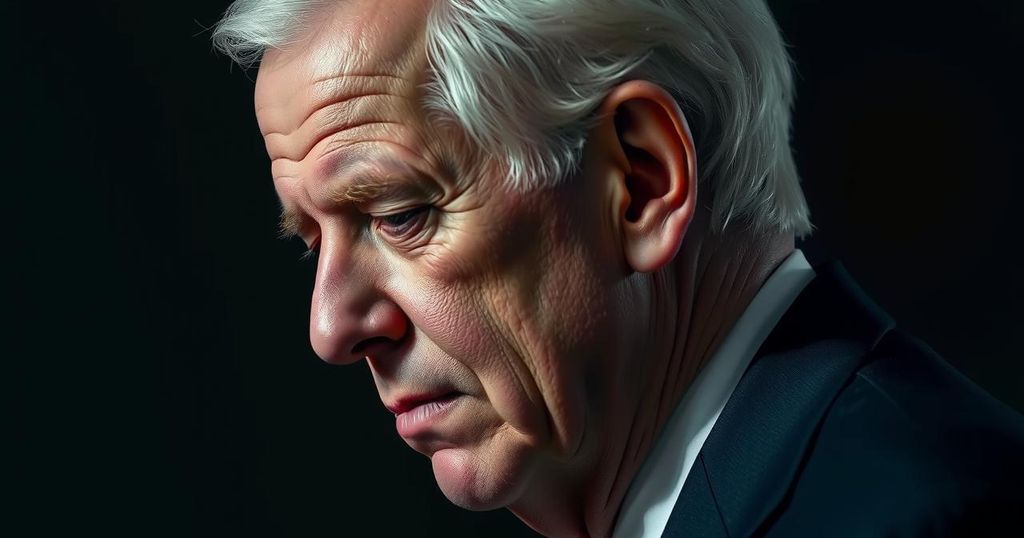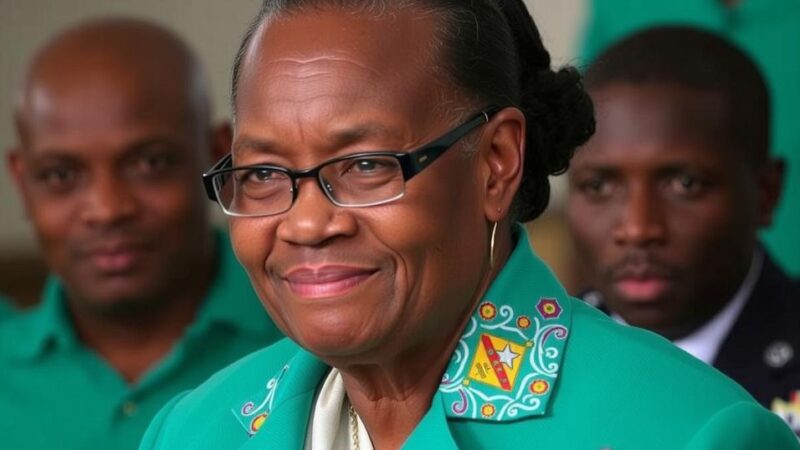Following the Democratic Party’s defeat in the 2024 elections, President Biden has remained unusually silent, mostly refraining from discussing the implications of the outcome or his reflections on it. During his recent trip to South America, he did not hold press conferences or engage extensively with reporters, leaving discussions about significant political changes to international allies. Analysts urge Biden to take a more proactive stance as the political landscape shifts toward a second Trump administration.
President Joe Biden has exhibited a notable silence following the Democratic Party’s disappointing outcome in the recent elections. After years of cautioning voters about the potential hazards of a second Donald Trump administration, Biden has refrained from addressing his concerns regarding the future implications for American democracy and has not provided an extensive analysis of the electoral defeat. His only significant public comments on the matter were delivered shortly after the elections, where he encouraged unity and cooperation among Americans. Since then, he has maintained an unusually low profile, particularly during his recent South American trip, opting for brief interactions instead of engaging in a substantive discussion regarding the election’s ramifications.
Amidst a critical juncture for the U.S. and global politics, President Biden’s reticence has sparked conversations about the need for new leadership within the Democratic Party. As noted by David Axelrod, a former adviser in the Obama administration, Biden’s era appears to be drawing to a close, paving the way for emerging leaders to assume greater roles. Meanwhile, historians like Edward Frantz have expressed concern about Biden’s limited window for addressing the aftermath of the elections and shaping his legacy, referencing parallels with former President Jimmy Carter’s exit from the political spotlight.
Biden’s aides assert that the President and the Democratic Party are processing the electoral defeat privately, recognizing it has only been a short period since Trump’s victory. Biden’s commitment to maintaining traditional electoral protocols, such as promoting a smooth transition, contrasts sharply with Trump’s previous refusal to concede. Nevertheless, Biden’s lack of public engagement continues to fuel speculation about his thoughts concerning the recent political shift.
During his six-day trip to Peru and Brazil for high-level meetings, Biden chose not to hold a press conference—a departure from typical presidential practice. Instead, he provided limited responses to queries from reporters and preferred leaving discussions about critical issues to allies such as French President Emmanuel Macron and Canadian Prime Minister Justin Trudeau. Furthermore, Biden’s interactions with world leaders highlighted a backdrop of uncertainty in U.S. foreign policy under a potential second Trump presidency, as even international counterparts expressed concern over the election’s outcomes.
Summarily, Biden’s decreased public presence following the electoral defeat serves as an indicator of the current political climate, with historians and political analysts urging a proactive approach to address and negotiate the implications of the Republican victory. Additionally, this silence carries the potential of leaving a considerable void in the narrative of American democracy as the nation progresses into new political realities.
Following the 2024 elections, President Joe Biden has notably refrained from public discourse in the aftermath of significant losses for the Democratic Party. This silence is particularly striking given his previous warnings about the dangers of a Trump presidency. The political landscape has been drastically altered with Trump winning both the popular and Electoral College votes, thus necessitating an evaluation of Biden’s role and the Democratic Party’s future direction as they contend with their electoral setbacks. Political analysts are engaged in discussions regarding Biden’s next steps and the impact of his quietude on both domestic and international fronts as he navigates the remainder of his term.
In conclusion, President Biden’s silence following the Democratic Party’s electoral defeat reflects a pivotal moment in American politics. His lack of public engagement raises questions about his strategy for addressing the implications of a second Trump presidency while highlighting the need for a new generation of Democratic leadership. As the political landscape evolves, Biden’s actions during this critical period will undoubtedly shape his legacy and the Democratic Party’s future trajectory.
Original Source: apnews.com







